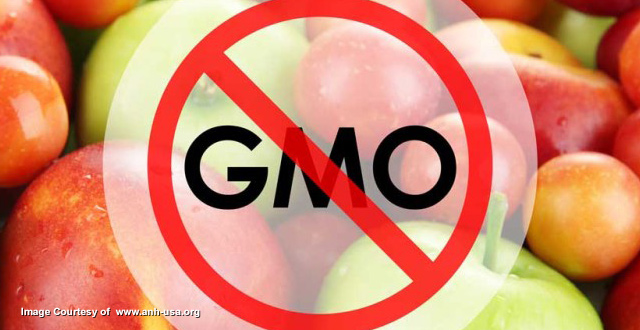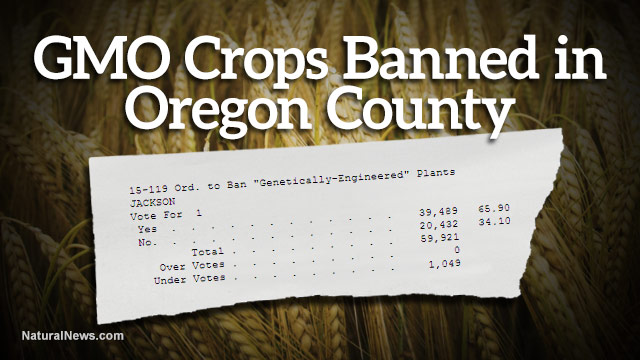Natural News
Wednesday, September 23, 2015 by: J. D. Heyes
(NaturalNews)
Some organic food experts are worried that the term used to describe
non-genetically modified crops and produce may soon become nearly
meaningless, thanks in large part to undue (read
corporate) influence on the Department of Agriculture.
According
to Jerome Rigot, PhD, writing in a blog posted at the Cornucopia
Institute, which promotes food safety backed by science, it may no
longer be accurate to rely on the USDA's "organic" labeling as remaining
"true to its mandate of assuring consumers that food under this label
is truly healthy and grown or raised with minimal impact to the
environment," as well as respecting "the health and well-being of the
workers and animals involved."
Rigot notes that, among other concerns, Consumers Union, the publisher of
Consumer Reports,
recently downgraded its rating of the Agriculture Department's organic
seal and label. The director of the Consumer Safety and Sustainability
Center for the magazine, Dr. Urvashi Rangan, testified to the National
Organic Standards Board in late 2014: "Organic is slipping. And as a
result, we have downgraded its rating from highly meaningful to
meaningful." He further noted that the rule of the magazine "is to help
educate people about what organic means as well as what it doesn't
mean."
Regarding these concerns, Rigot wrote:
As an
example, the Cornucopia Institute filed formal legal complaints with the
USDA in December 2014 against 14 giant poultry and dairy CAFOs (read:
concentrated animal feeding operations or "factory farms") for allegedly
violating the USDA organic regulations requiring outdoor and pasture access. Each complaint was summarily dismissed, without
an investigation, by the enforcement division of the National Organic
Program (NOP), which stated, "The NOP has reviewed these complaints and
has determined that investigation is unwarranted."
Inept, corporatists or lobbyists
The
determination was odd, says Rigot, because literally hundreds of
high-res photos, satellite imagery and state regulatory documents were
submitted as evidence to the NOP which, together, should have produced
more than enough doubt to motivate someone to launch an investigation.
A former NOSB board member who manages the country's first certified
organic
dairy farm, Kevin Englebert, was clearly disappointed by the NOP
decision, seeing it as a lapse of the organization's responsibilities.
"For
the NOP to not even investigate these facilities means one of three
things: 1) the personnel who made that decision are inept, 2) they are
too close and friendly with corporate lobbyists and multimillion-dollar
certifiers that are involved in the process, or 3) the most likely
scenario, corrupt politicians are preventing them from enforcing the
law," he said, as quoted by Rigot, who intimated that elements of all
three reasons might be at play.
He noted that the National Organic
Program is a very small part of the Agriculture Department. However,
many large corporations have a significant vested interest in organic
foods, especially the processed foods industry (including General Mills,
Smuckers, Coca-Cola, etc.), and
similar to GMO corporations, they'll do whatever it takes to expand their bottom line.
"Circumstantial
evidence makes it reasonable to conclude that the same type of undue
industry influence that appears to have prevented Vilsack and the USDA
from acting quickly to end the Salmonella outbreak [in 2014] and limit
the health toll is behind efforts to dilute the federal organic
standards, control the NOP leadership, and limit or obstruct the ability
of the congressionally authorized National Organic Standard Board from
doing its job efficiently and with integrity," Rigot wrote.
For more breaking news regarding organic agriculture, check out
Organics.news, powered by
FETCH.news.
Compromised board members
In September 2014,
we reported
that the Cornucopia Institute had conducted a study to examine the
voting records and backgrounds of the 15 members of the NOSB.
The
board is an advisory body created by the secretary of agriculture to
make recommendations aimed at preserving and protecting the organic
farming industry. What's more, the board is also required to maintain
and update the National List of Approved and Prohibited Substances – a
list that identifies substances and other compounds that cannot be used
in organic crop and livestock production.
The NOSB's seats are
supposed to be filled with members representing farmers,
environmentalists, public interest advocates, handlers, retailers,
scientists and a USDA certifying agent. However,
Cornucopia
found in its study that corporate representatives were filling seats
intended for farmers and other independent organic industry
stakeholders, often leading to decisions that were not beneficial to the
organic food and livestock industry.
Details surrounding that study are posted
here.
Sources:
Cornucopia.org
NaturalNews.com
AMS.USDA.gov



























 You can sign a
You can sign a 









 If
you’ve wanted to look at GMOs purely from the financial bottom line,
then this news should make you think twice about Biotech’s promises of
better farming and better business. If GMOs really produced a higher yield and feed more hungry people, then why are GMO corn farmers losing land and
If
you’ve wanted to look at GMOs purely from the financial bottom line,
then this news should make you think twice about Biotech’s promises of
better farming and better business. If GMOs really produced a higher yield and feed more hungry people, then why are GMO corn farmers losing land and 





